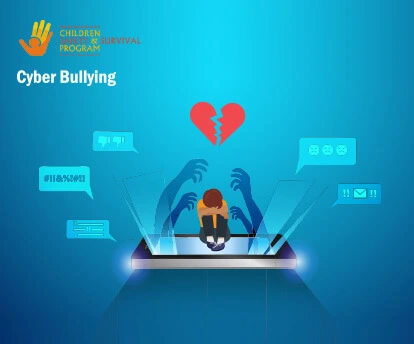
In today’s digital age, cyberbullying has become a pressing issue, significantly impacting the well-being and mental health of individuals, especially among the youth. As a form of harassment that transcends physical boundaries, cyberbullying allows perpetrators to relentlessly target their victims via online platforms day and night. This pervasive problem presents distinct challenges for teachers and parents, who find it difficult to effectively monitor and intervene due to its continuous nature.
To combat this alarming trend, it is essential to comprehend the profound impact of cyberbullying and take proactive measures by implementing comprehensive prevention programs. In India, where cyberbullying in schools is a growing concern, such initiatives hold immense importance in safeguarding the emotional and psychological well-being of students. By prioritizing cyberbullying prevention programs, we can create a safer and healthier digital environment for the younger generation.
Cyberbullying can have severe consequences for victims, often causing emotional distress, anxiety, and depression. It can lead to social isolation, damaging the victim’s self-esteem and overall well-being.

Shockingly, studies conducted as recently as 2018 have revealed a distressing correlation between cyberbullying and self-harm, with young people under 25 who are victims of cyberbullying being more than twice as likely to engage in self-harm or exhibit suicidal tendencies. These findings shed light on the urgent need to tackle cyberbullying head-on and implement proactive measures to protect vulnerable individuals.
One of the major challenges in combating cyberbullying is the ease with which perpetrators can hide behind the cloak of anonymity. This anonymity not only emboldens bullies but also makes victims reluctant to report incidents to authorities, fearing further reprisal or the hassle of going through the reporting process.

Furthermore, cyberbullies can easily evade blocks and continue their harassment by creating new accounts under different identities. This persistent nature of cyberbullying exacerbates the victim’s sense of helplessness, leaving them with nowhere to turn for support.
To effectively address cyberbullying, it is essential to take a proactive and multi-faceted approach. Here are some crucial steps that can be adopted:

When confronted with cyberbullying, it is crucial to remain composed and not respond impulsively. Reacting emotionally can escalate the situation and give power to the bully. Utilizing strategies taught through programs like Wayne MacDonald’s Child Safety Life Skills, victims can learn to control their emotions, gaining a clearer perspective to deal with the issue effectively.
Once in a calm state of mind, victims can focus on developing an actionable plan to address the cyberbullying situation. This plan may include:
In India, there is a growing recognition of the need for comprehensive cyberbullying prevention programs. Initiatives like Wayne MacDonald’s Child Safety & Survival Program are dedicated to addressing cyberbullying in schools and equipping students with the necessary skills and knowledge to navigate the digital landscape safely.

The programs not only focus on empowering victims but also aim to educate potential perpetrators, helping them understand the consequences of their actions and fostering a culture of respect and empathy online.
Cyberbullying is a menace that needs to be addressed by everyone. By implementing robust prevention programs, fostering open dialogues, and providing support networks, we can create safe digital environments for our children. Cyberbullying must be identified, victims must be supported, and people must be made aware of the negative effects of such behavior. Together, we can protect our youth, promote their mental well-being, and ensure a positive online experience for everyone.
Cyberbullying prevention programs are comprehensive initiatives designed to educate students, parents, and teachers about the risks of cyberbullying, promote safe online behaviors, and provide support to victims. In Indian schools, these programs are crucial because they help raise awareness about cyberbullying, equip individuals with strategies to prevent and address it, and foster a culture of empathy and respect online.
Schools face several challenges in tackling cyberbullying effectively. One major challenge is the anonymity factor, which allows bullies to hide behind online identities, making it difficult to identify and address them. Additionally, victims may be hesitant to report incidents due to fear of retaliation or the cumbersome reporting process. Cyberbullies can also evade blocks and continue their harassment through new accounts, intensifying the sense of helplessness for victims.
When faced with cyberbullying, it is essential for students to respond calmly and avoid immediate emotional reactions. They can develop an actionable plan by cultivating a positive mindset, limiting exposure to cyberbullying, accepting the reality of the situation, and documenting evidence. Seeking support from trusted figures of authority, such as parents, teachers, or school counselors, is crucial in obtaining guidance and protection.
Prevention programs play a vital role in addressing cyberbullying in Indian schools. They educate students about the impact and consequences of cyberbullying, equip them with skills to navigate the digital landscape safely, and encourage responsible online behavior. These programs also aim to raise awareness among potential perpetrators, fostering a culture of respect and empathy online. By implementing such programs, schools create safe environments and protect the mental well-being of their students.